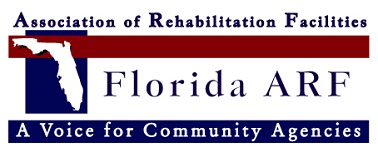 One of the founding missions of Henderson Haven is to help ensure everyone was given the opportunity to live their own independent lives without being forced into grouped work and home environments. You know, the life you and I take for granted. It’s the very basis of our mission statement: “To protect and support the inherent rights of all people to CHOOSE where, and with whom, they work, live, and play.” People shouldn’t be placed into group homes, workshops, and ADTs because it makes other’s lives easier.
One of the founding missions of Henderson Haven is to help ensure everyone was given the opportunity to live their own independent lives without being forced into grouped work and home environments. You know, the life you and I take for granted. It’s the very basis of our mission statement: “To protect and support the inherent rights of all people to CHOOSE where, and with whom, they work, live, and play.” People shouldn’t be placed into group homes, workshops, and ADTs because it makes other’s lives easier.
Before you pull out your torches and pitchforks, hear me out. We’re not naive. We’re not saying those programs have no place and may very well end up being the best option for some. What we’re saying is they shouldn’t be the first option we jump to before anything else has even been tried. There are many reasons this happens, but one is because we’ve started accepting these programs as community inclusion and they are NOT. They are integration and we need to remember this is not the same thing. If fact, if we were to accept integration as inclusion for any other minority – well, let’s just say the pitchforks and torches would be out in full force. So why have we not only accepted, but advocated this life for those with special needs?
Now we’ve even gone so far as to group the group homes and call it a “planned community”. This is literally the very definition of integration. It shines an even bigger spotlight on the fact that these individuals are different and shouldn’t be included fully within our communities. In order to better understand what is I’m trying to say, let’s take a look at inclusion vs. integration in an educational setting. Here is how differencebetween.com explains it:
Integration
Integration is the process in which students with special needs are absorbed into the mainstream education. Therefore, in this approach to education, the emphasis is on fitting into the mainstream education. Although the approach aims at catering to the needs of the students with special needs, this can increase labeling of students due to pre-existing structures and attitudes. This can hinder the development of the child’s education. In integration, different techniques, services, and adaptation methods are used. Mostly these are very formal structures that aim to assist the student to adapt or fit into the mainstream education.
Inclusion
Inclusion is the process of educating children in such a way so that it benefits all students and entails a clear participation as well. Hence, it focuses not only on students with special needs but others as well. This is why the inclusive approach is considered as ‘education for all’.
In this approach, it does not encourage the students to fit into the mainstream education. On the contrary, the school changes to accommodate the needs of all. Therefore, it accepts the diversity of students and uses different techniques to benefit every student. Furthermore, now in the modern education system, inclusion is considered as the best option as it discards labels and barriers that hold back students and encourage full participation.
As you can see, integration is very much different from inclusion. Now in the education discourse, experts believe that the benefits of inclusion in education are much greater in comparison to integration in education.
We simply believe these concepts are just as important in community living as they are in education. People should be allowed to take part in their community, not just exist there. This isn’t an easy goal to achieve. It requires everyone to be willing to accept those with special needs in the everyday lives of the communities they live in. Now at this point you’re probably asking yourself, “We don’t utilize inclusion in schools now. How can you expect full community inclusion?” And you’re right. Very few schools in Florida use the inclusion model. In fact, many still rely on full segregation. It’s going to take time and commitment to begin to move in that direction. So why is this so hard for people to do?
One reason is because families, guardians, those responsible, feel more secure in the knowledge that the ones they love are in somewhat of a protective bubble. They sleep better believing those they care for are shielded from all the evils and pitfalls that come with a life of free choice. Wouldn’t it be nice if we could make that decision for all those we raised and care for? Just imagine how much calmer our lives would be if our kids were never placed in a situation where they could be hurt, either physically or emotionally. I can tell you in our own experience, we had times when our own son with Down Syndrome found himself in situations, but we had that same outcome with his siblings when they were first on their own as well. Guess what – that’s life! Of course, that doesn’t mean you dive blindly in without a plan or the ability to adjust as needed.
When our son was diagnosed with early onset Alzheimer’s, we had to look at other options in order to allow him to maintain his independence for as long as possible. As his dementia increased, he moved in with his brother to help ensure he had the needed supports, and then to help make sure his brother was able to work and have a social life, we utilized an electronic system that helps us to keep track of his health and safety with reports and alerts on his movement, eating, temperature, etc., as well as give us a way for initiate video communication on both sides when needed. In short, there are options out there to help people support their life choices other than jumping to group settings – you just have to willing to think outside the box and then take the time to look for those solutions. Of course, if you need help, we’re always here for you!







